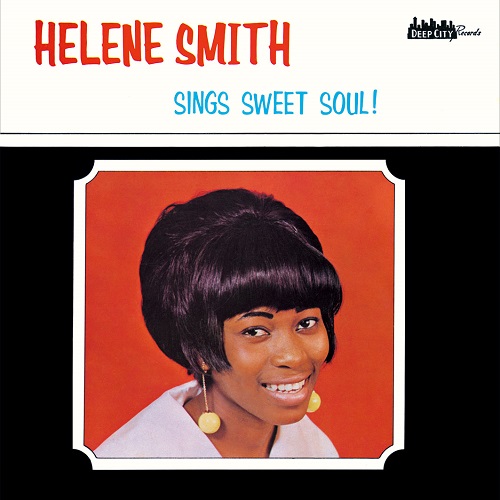- Sense and Nonsensibility: What Miami Teaches, from the Outside Looking in

- MĂIASTRA: A History of Romanian Sculpture in Twenty-Four Parts
CITY OF PROGRESS
Nathaniel Sandler

LANG COOK, “LIBERTY CITY JAM” (1984)
If you go to Andrew Yeomanson a.k.a. DJ Le Spam’s live/work studio in North Miami he will probably make you coffee. He’s got a restaurant-grade espresso machine in the kitchen and firmly believes that if your coffee beans were roasted more than two weeks ago, then they’re stale. The coffee machine is but one of Le Spam’s many prized possessions. Inundated by ceaseless tchotchkes and ephemera, every scrap of available surface area inside the City of Progress—as he calls his studio—is covered with vinyl records, cassette tapes, CDs, 8-tracks, and loads of audio equipment. He estimates there to be around fifteen thousand vinyl records all told, whether they be LPs, 45s, or 78s. To say nothing of the actual Spam collection would be an injustice; Le Spam’s precooked meat assemblage boasts such rarities as a vintage Dutch Spam tin and one from Korea. He’s quick to note that Canadian Spam is actually called Spork.
TRACK TWO
DAVID HUDSON, “MUST I KILL HER” (1978)
A quick run-down of the high-mileage vehicles in Le Spam’s collection:
• 2002 Ford E350 Club Wagon (223,000 miles): “The Spam Allstars touring and logistics vehicle.”
• 1996 Volkswagen Golf GTI (136,000 miles): “Daily driver, but not driven daily.”
• 1979VolkswagenBus(exceeds mechanical limitations): “My friend since 1992.”
• 1963 Austin-Healey Sprite (exceeds mechanical limitations): “I prefer to drive this car at night. During the day it’s like riding in a skillet.”
TRACK THREE
BLOWFLY, “INTERNATIONAL PRICKS” (2007)
Surrounded by vinyl records is where the awestruck stand inside the City of Progress. The records fortify the walls. Thousands stand together, gems of the deepest crates, waiting for their moment.Before his set for O, Miami Festival’s Poetry in the Park, Le Spam can barely hold back his enthusiasm at the selection of his opening track: “Sir Gawain and the Green Knight.” The late fourteenth-century Middle English epic is blasted loudly to hundreds of eager poetry fans at the New World Symphony Park and eased perfectly into the funky drums and horns of the Spam Allstars, the band Yeomanson started and has fronted for two decades.
“He has an uncanny ability and patience to find rare collections,” says Kevin Arrow, Art and Collections Manager at the Patricia and Phillip Frost Museum of Science. “And his depth of musical knowledge is profound. He has assembled one of the most complete regionally specific collections of recordings in the world.”
From poetry to Miami-specific rarities, to a bizarre batch of records with hand-drawn adornment on the sleeves,Le Spam’s collection is made up of both oddities and more practical records that he uses for gigs in a rotating selection.
His bug-out record—the one he would grab if the City of Progress were somehow tragically overrun—is Helene Smith’s Sings Sweet Soul!, an original Deep City Records pressing from Miami that is highly collectible and outrageously expensive.
THE MAD HATTER, “DRACULA’S BOOGIE” (1984)
Le Spam is an extremely likeable and outgoing guy. He is humble and sometimes a bit goofy. In his office sits a collectible Kermit the Frog phone that he jokes is what all the important business calls go through. The line is live and the joke is possibly not a joke at all. He speaks fondly of his cat Fuzz, a.k.a. Fuzz Face, named after Jimi Hendrix’s distortion pedal. When a track plays loudly enough, Le Spam’s shoulders and distinctive bald head bounce back and forth to the beat behind the turntables or mixing board. During every show, this almost iconic dance is omnipresent, recognizable to all of Miami nightlife. He’s been doing that dance for a while.
Twenty years ago this year, he started the Spam Allstars. Miami Beach celebrated the milestone at the band shell in North Shore Park in North Beach, one of the group’s favorite spots. Of the beginning, Le Spam says, “Our first few shows included live preparation of Spam onstage featuring an electric frying pan”—a gimmick no longer in practice. As he explains, “around 1996 or so, a friend brought some Capitol Records execs to see the band play at a place called South Beach Pub, however on this particular occasion, the frying pan was set too high and the smoke from the burning Spam proved to be too much for the label people to handle.”
TRACK FIVE
BUBI AND BOB, “THE MUMMY” (1959)
Le Spam loves his city. The name for his studio comes from the seal for the City of North Miami that he noticed once on a garbage can. He explains, “It said ‘City of Progress’ and so I named a song, then later the studio [after it].” He goes on to clarify that, “it’s not meant to be ironic. It’s a sincere desire for advancement.”
Most musicians come to City of Progress because the studio specializes in analog tape. “It’s a texture thing,” he says, “a way to color the music.” In particular, recording drums and percussion initially to analog tape is a crucial part of his
process. Le Spam believes wholeheartedly that music has a better sound when it’s “outside the box,” meaning, before it’s digitally tracked for compatibility with your computer, it goes through something that isn’t a computer. Anything that’s inside the box takes place on a laptop.
“I’m outside the box,” he candidly, defiantly claims. Le Spam recently received a Knight Arts Challenge grant for the studio. In grantspeak, the money is going toward preserving the art of analog. But practically speaking, it’s to add another eight channels to his MCI analog tape machine, a massive 1980s audio console that originally retailed for around $30,000, more than some houses cost then. Music Center Incorporated, the manufacturer, was located in Fort Lauderdale.
“You can hear it in the Miami records,” Le Spam claims, referring to those pressed from Miami’s TK Records and Deep City, the funk soul and rap triumphs that are sometimes forgotten, but that this city was built on. Strong, thick sonic signatures, with a low-end boom made famous by Miami booty bass. These machines didn’t just contribute to the local sound, they made it. This is the work of the City of Progress, preserving a history and creating more of it by recording both local and international artists here in Miami.
Plans as of now are imminent upgrades to the facility, and as Le Spam explains, “people are gonna hear about it and people are going to want to record here.” Here is North Miami, the City of Progress, where Le Spam—after a long journey—settled and stayed. He’s not going anywhere. “Miami is the only city in the US that I want to live in,” Andrew Yeomanson a.k.a. DJ Le Spam says. “Why? Coconuts, mangoes, avocados, and funk 45s.”










